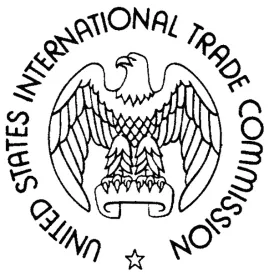Over the last decade, patent litigation has exploded at the International Trade Commission (“ITC”), which has caused the ITC to seek out ways to increase efficiency. Several years ago, the ITC introduced an early 100-Day pilot program to dispose of dispositive issues early on in investigations. While now a mainstay, the 100-Day pilot program is rarely utilized. Now, the ITC has announced a new pilot program that if invoked will require the presiding Administrative Law Judges (“ALJs”) to hold an early hearing and issue an early initial determination (“ID”) on “fewer than all issues” in a Section 337 investigation. The goal of this new pilot program is ostensibly in line with the ITC’s continuing goal of enhancing efficiency and judiciously deciding cases.
Under the new pilot program, the ITC can designate, at institution, for an ALJ to receive early briefing, hold an early evidentiary hearing, and issue an early ID on “infringement, patent invalidity, patent eligibility, standing, or satisfaction of the domestic industry requirement.” The ITC provided specific parameters that ALJs must implement in the early ID pilot program. Importantly for parties practicing at the ITC, ALJs are now allowed to stay the remaining schedule if the early ID program is utilized in a particular investigation. The pilot program will apply to all investigations instituted on or after May 12, 2021, and for earlier investigations at the discretion of the presiding ALJ. After two years, the Commission will decide to promulgate procedural rules governing interim IDs.
The ITC “expect[s] that interim ID issues will be case-dispositive, or will resolve significant issues in advance of the main evidentiary hearing, and could facilitate settlement or otherwise resolve the entire dispute between the parties.” This expectation harkens back to the near identical espoused purpose of the ITC’s 100-Day pilot program, discussed above. Unlike the current program, the 100-Day pilot program was designed for early disposition of issues like domestic industry, importation, and standing.
While it is still unclear how often and for what purposes the new pilot program will be utilized in practice, litigants will need to consider whether any of the relevant issues in an investigation could be subject to early disposition. Litigants will also need to consider how, if the new pilot program is invoked, early disposition would affect the overall landscape of an investigation. Respondents will attempt to utilize the new pilot program in order to separate weak portions of a complainant’s case from the strong ones, so that an ALJ is asked to rule early only on the weakest parts of complainant’s case, without also considering the strongest parts. Complainants will need to be minimize the possibility of such an event occurring in order to increase the likelihood of success at the ITC.





 />i
/>i
